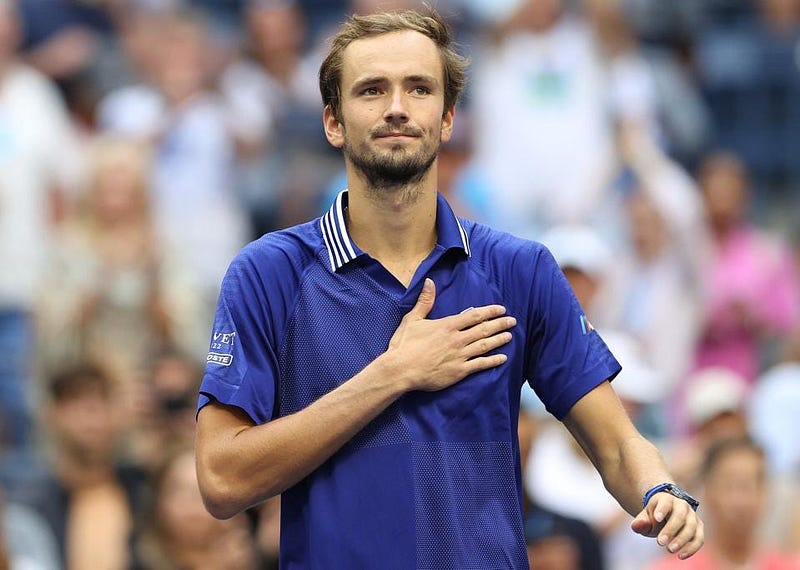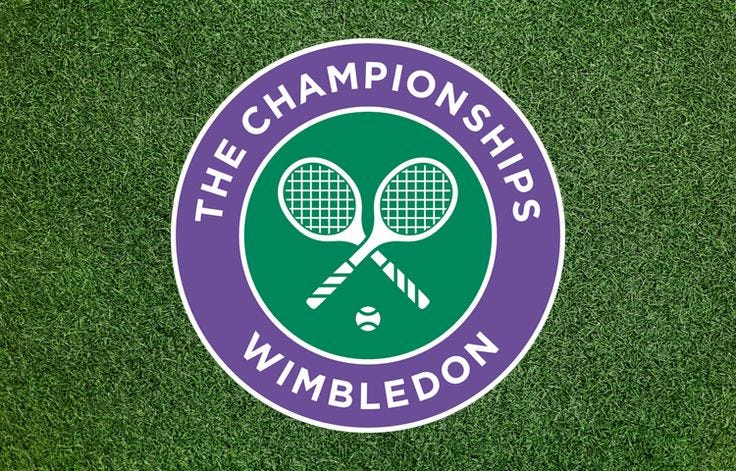
A couple weeks ago, Wimbledon, one of the four biggest tournaments in tennis, announced that in the interest of preventing the Russian regime from benefiting from the event, all Russian and Belarusian players would be denied entry. As in: not allowed to play because of their nationality. My gut reaction when the news came out was anger. Russian and Belarusian players were being punished for doing nothing wrong. Ukrainian players were demanding that Russian and Belarusian players publicly speak up against Putin and the war, and while I agreed with the sentiment of just wanting the war to end, I feared that such a public denouncement could potentially result in the players and/or their families being harmed, given that they are essentially living under a dictator.
Some of these views have stuck with me, but this is an incredibly complex situation in which many things are simultaneously true. Yes, Russian and Belarusian tennis players have done nothing wrong, but there is a war going on. If Putin truly could benefit from a Russian champion at Wimbledon — and Putin has been buoyed by sporting success in the past; his approval ratings soared after Sochi hosted the 2014 Olympics — why give the opportunity? As Sally Jenkins writes in the
Washington Post
, Putin was flanked by athletes as he held a pro-war rally at Moscow Stadium in March. At the same time, does the huge injustice of the war make the smaller injustice of banning players from Wimbledon based on their nationality okay, or at the least abidable? This is a dangerous precedent to set.
Despite legitimate practical reasons for this ban, there is an undeniably icky feeling to it. Aryna Sabalenka made the Wimbledon semifinals last year and nearly got through to the final. She is Belarusian, so she will not be allowed to play this year. Daniil Medvedev has reached the coveted world number one ranking this year, and though he has since fallen to #2, a good showing at Wimbledon could help him reclaim it. He is Russian, so he will not be allowed to play. It is indisputably unfair. Jenkins’ piece in the
Washington Post
went on to express some iffy viewpoints: that citizens bore some responsibility for the actions of their state, that “if ATP officials have an issue over fairness, it’s not with Wimbledon. They should take it up with Putin,” and that “Russia — not just Putin — is destroying Ukraine, so the response can’t be limited to Putin while exempting the citizenry.” As if the Russian dictator is taking advice from tennis players. More moderate responses to the war have also been suggested. Russian and Belarusian players could compete under a blank flag, for instance, or Wimbledon could donate a portion of its proceeds to humanitarian causes.
All that said, the biggest atrocity here is the ongoing war on Ukraine. When Ukrainian tennis players throw their support behind the Wimbledon decision or demand that their Russian peers denounce Putin, it feels wrong to criticize them because they and their families are going through hell right now. Former Ukrainian tennis players Sergiy Stakhovsky and Alexandr Dolgopolov even joined the war effort, saying they were willing to fight. “Maybe I’ll be killed, maybe I have to kill,” Dolgopolov said in March. I am so far removed from being in that position that I do not feel at all qualified to disagree with them. At the very least, they clearly have the right to feel the way they do.
I have concluded, at least for now, that both being in favor of the ban and being against it are viable viewpoints. This is a no-win situation. A bad thing with potentially bad ramifications is happening in the hopes of helping end a really bad thing. Whatever ends up happening — there is talk of a potential boycott, and there are things that would shock me more than Wimbledon changing its tune before the tournament, which is still months away — a group of people will come away feeling angry or hurt. I love tennis and look forward to Wimbledon every year, but with the war still raging, dwelling on this issue is missing the forest for the trees. Perhaps the only positive to come out of this episode is a reminder to have perspective.

























